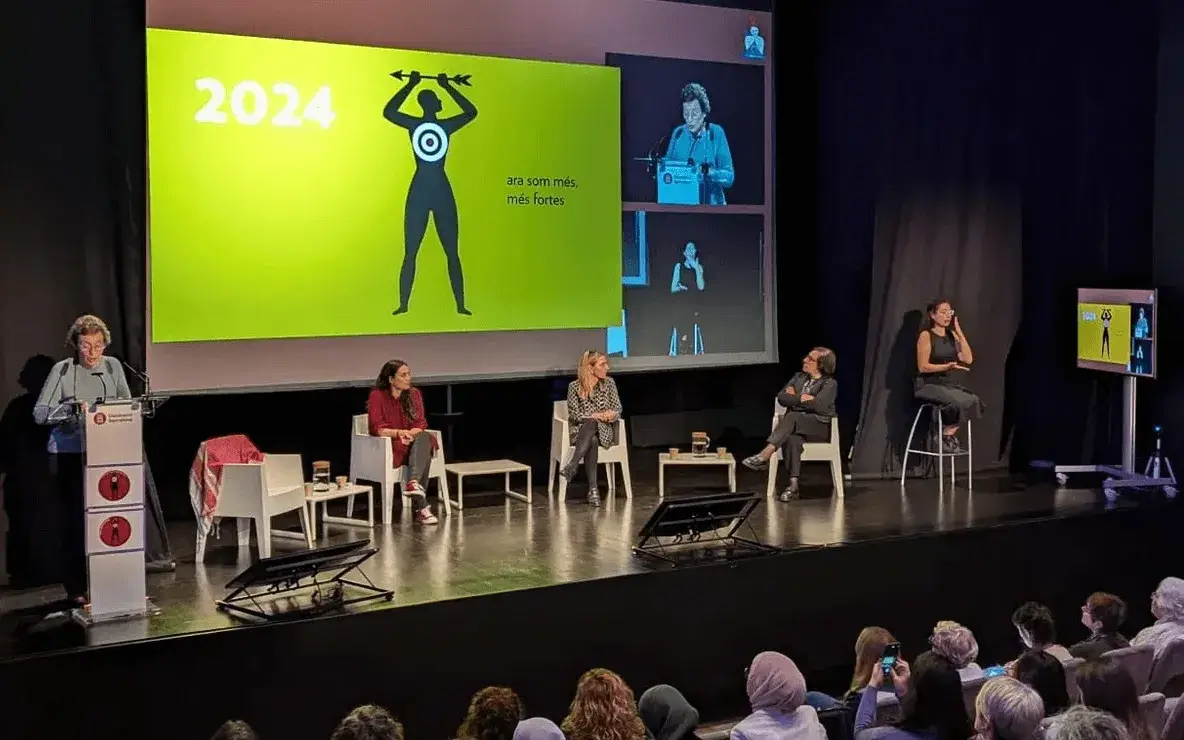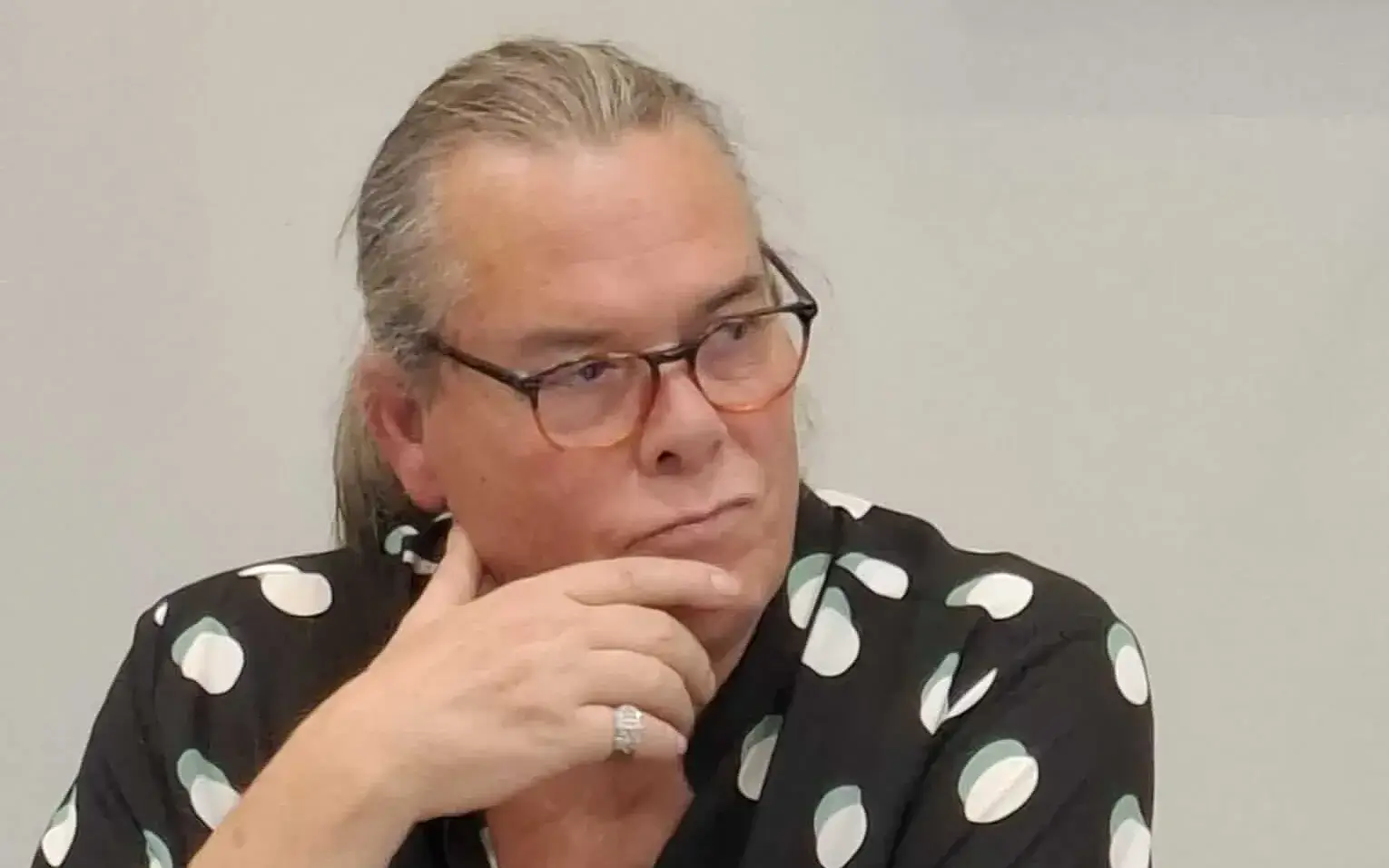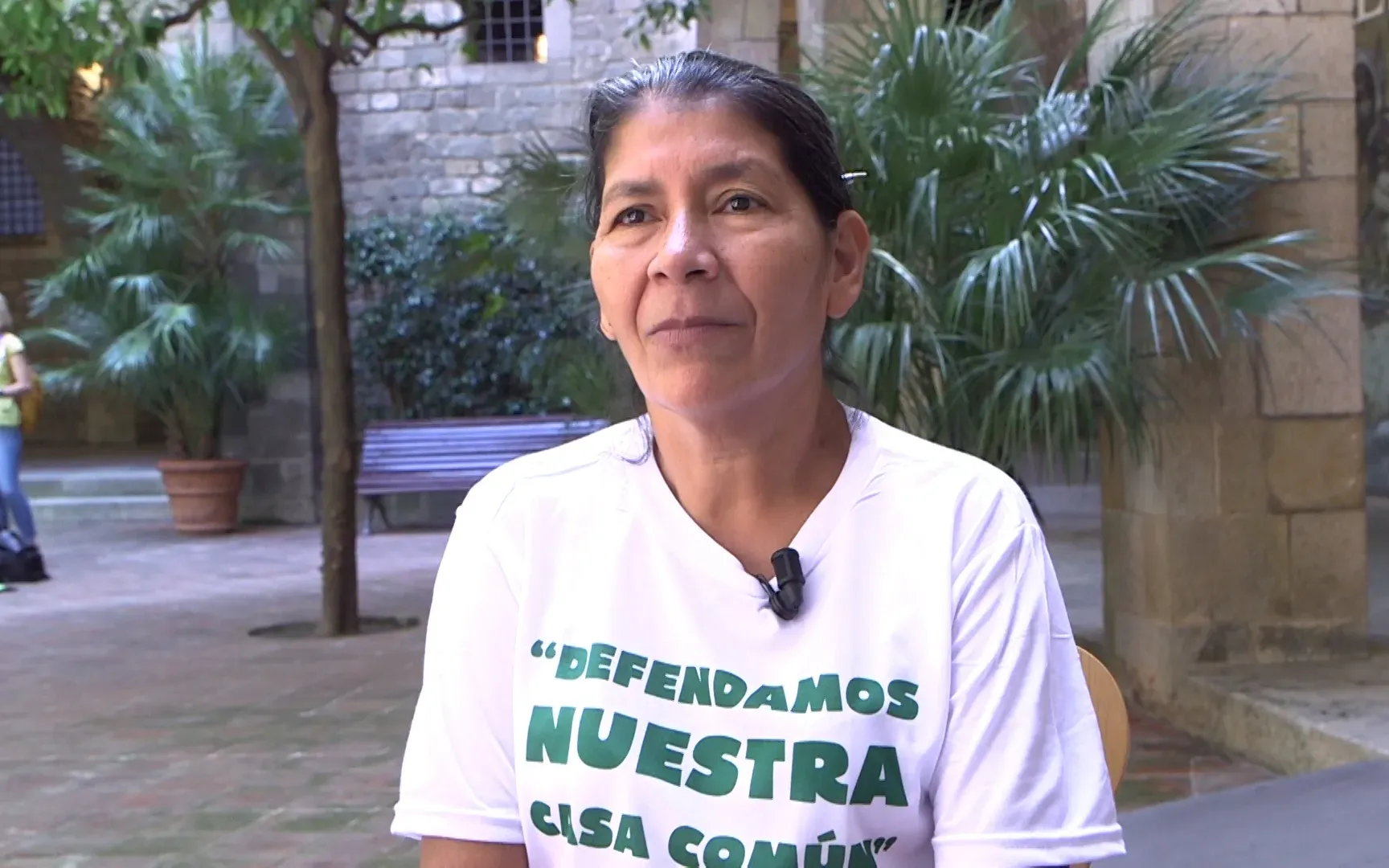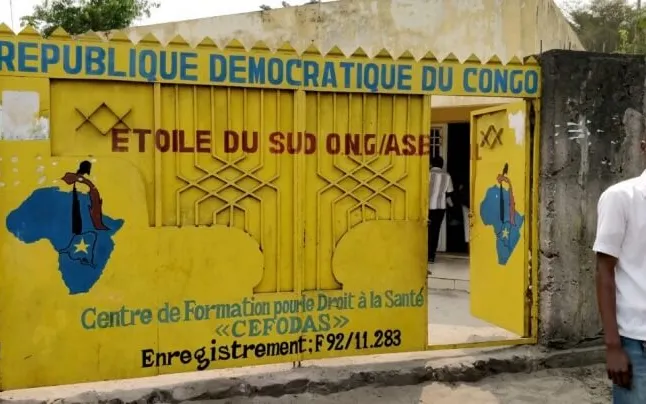
Coinciding with this annual meeting, the Plataforma Unitària contra les Violències de Gènere (United Platform Againts Gender Violence), the organizing entity, presented its new logo.
The Plataforma Unitària contra les Violències de Gènere (Unitary Platform againts Gender Violence) celebrates its twentieth anniversary and, as usual, marks this milestone at the 20th Forum Against Gender Violence, which took place last week at the Francesca Bonnemaison Women's Culture Centre in Barcelona.
The Forum began with an address by the president of the Platform, Montserrat Vilà, who introduced the entity's new logo. In this new phase, it retains the central figure of the woman but now breaking an arrow, as Vilà assured, "it is time to break the patriarchal misogynistic arrow."
This was followed by institutional speeches by Raquel Albiol from the Barcelona Provincial Council, Raquel Gil from the Barcelona City Council, and Eva Menor, Minister of Equality and Feminism of the Generalitat of Catalonia. Menor stated that "feminism is more necessary than ever and must be more united than ever," while Gil and Albiol reaffirmed the institutional commitment of the Provincial Council and City Council to the fight for equality.
Next, after a poetic action in memory of Afghan women, the first round table of the day began, revolving around free consent and the right to one's own body.
The conversation was moderated by Laia Serra, a criminal lawyer specializing in equality, who started her speech by reminding that "98% of sexual violence is not reported, so the response must come from another place, not from the judicial field." Serra also emphasized that "it is important to recognize women as political subjects, in addition to being victims, in processes of sexual violence" and highlighted the "indispensable" work of feminist organizations that accompany survivors of violence.
For her part, Guiomar Rovira, a professor at the University of Girona and writer, highlighted the importance of social media in bringing consent to the global feminist agenda, stating that "social media can be spaces for unexpected conversations and can be hacked by women." Rovira exemplified this 'hacking' by talking about the #NiUnaMenos hashtag that became popular in Latin America in 2015 and started what the professor called "the era of Me Too."
Silvia Alberich, an anthropologist and expert in equality policies, focused on the restorative perspective when addressing cases of gender violence, stating that "the impact of violence, the trauma it generates, and the consequences it has on the victims' lives must be considered." Similarly, academic, teacher, and women's rights consultant Patsili Toledo added that "we must understand sexual violence as social violence that affects us all" and continued, "when your sister is assaulted, you are affected, just as when the aggressor is your father."
The second part of the table featured practical examples of initiatives and organizations fighting for the right to one's body and was moderated by Anna Celma, a journalist from La Directa.
The table began with a speech by Gemma Altell, a social psychologist and co-director of G360, who talked about the situation of homeless and drug users women. Altell insisted on the stigma these women face when reporting, asserting that "the verbalization of the violence these women suffer is often not recognized by the system because the stigma makes them be considered 'subpersons'," adding that "when professionals ask homeless women about experienced gender violence, they always cite institutional violence first."
Next, the narrative of the table moved to Andorra with an intervention by Vanessa Cortés from the Stop Violències Andorra association. Cortés stated that "the violations women suffer in Andorra are so numerous that it has even been difficult for me to classify them," adding that in the Principality, "sexists are at home." Currently, in Andorra, abortion is prohibited, even in cases of rape of minors, and there are no specialized courts for gender violence.
Cortés has personally experienced the consequences of institutional sexism in Andorra, as the state government filed a criminal complaint against her for exposing the government's sexist practices to the UN, facing up to four years in prison and a fine of up to 30,000 euros.
Then, Ester Garcia, a lawyer specializing in sexual violence, who has handled cases that have set a media and social precedent for sexual violence, such as the rape committed by footballer Dani Alves, spoke. Garcia was very critical of the legal processes, asserting that "sexual violence will never be eradicated through the judicial system, because a judicial process is the most traumatic experience a woman can go through."
Similarly, Lidia Puigvert, a doctor in sociology and expert in gender violence, assured that "reporting sexual violence will always have repercussions for us, but it is important that we do it so that future generations do it too, so that they also talk about it." Precisely about this 'domino effect' also spoke Azahar Moreno, from the professional footballers' union Futpro, responsible for denouncing and supporting Jennifer Hermoso when she received the unsolicited kiss from Luis Rubiales. Moreno explained that "if it hadn't been for the collective support of the union, Hermoso would not have reported."
The talk ended with an intervention by Paula Méndez, responsible for accompanying women victims of sexual violence in her work at the Aadas Association, who spoke about the survival responses to violence. Méndez assured that "we must change the narrative, to stop minimizing protective responses and consider them as valid as fighting," adding that "addressing sexual violence requires that we position ourselves, clearly and unequivocally, on the side of those who suffer."
Although focused on consent and the right to one's own body, the Forum touched on many other topics such as child protection, new masculinities, and the role of young people in the feminist struggle during the three days it filled the Francesca Bonnemaison Women's Culture Centre with experts on violence, first-person testimonies, and organizations dedicated to promoting and preserving women's rights.






Add new comment